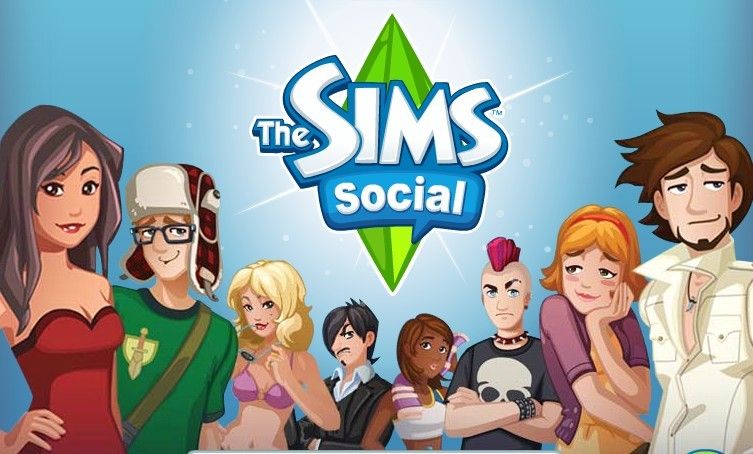Bing Gordon’s experience in the game industry is both broad and deep. As co-founder of Electronic Arts, he was instrumental in building one of the game industry’s largest publishers, where he oversaw and developed much of EA’s marketing, pricing and branding strategy. Now general partner and chief product officer at leading venture capital firm Kleiner Perkins Caufield & Byers, Gordon continues to launch major game companies and influence the direction of the industry. Here is a recap of some points he made at Game Marketing Summit earlier this year on games marketing and what he called ‘monetization hacking’. It’s some timeless advice for game marketers from perhaps the greatest game marketer in the business. “It’s a lifetime of ideas in a handful of minutes,” Gordon promised, and he delivered on that promise.
What is monetization hacking?
Hacking is a way to do something cheap and fast. In your skill set, you need to be cheap and fast. Read the book Positioning by Ries and Trout. Always position something in two axes that are quantifiable. Money is quantifiable, time is quantifiable. All monetization in games needs to understand how much time they save you. You should know in your game how many minutes of game play a customer can save by spending money. Don’t try to be the least time saved for the most money. This is shocking: Almost all entrepreneurial discussions I start with they try to do positioning with adjectives and adverbs. Don’t be that person — position with numbers.
What’s the importance of concept testing?
In the early days of EA when all we had were shoeboxes full of warranty cards, we would send letters to a thousand people and give them a piece of paper with a hundred game ideas on it, all in less than one line, and say “Circle the ones you’d definitely be interested in” and “cross out the ones you’d definitely not be interested in.” Any title or concept that got 30 percent circled was always a top ten when it was delivered with an 80 Metacritic. Now you can use the Web to catch this.
What is the Marketing X and why should we use it?
One of the things we should know as marketers, when you ask consumers how much they’re willing to pay they are ineffective. For the first decade in video games we asked consumers what they wanted it was always “great graphics.” Then we went to Nintendo who had a lab with cameras, and they showed us that when people said they wanted great graphics, what they smiled and leaned into was when the protagonist reacted graphically to the input on the controller. Similarly, if you talk to people about a game, salespeople all they care about is nodding heads.
Marketing people need to be more precise. So when you say “this is what the game is about” it really should suggest a single screen shot. Tell people what you think the Marketing X is, and ask them to show a screen shot. With The Sims, for example, the first draft of the package was a white picket fence with no people on the front. A game like The Sims, obviously it’s a people game, and there was that lousy sense of precision. David Ogilvie says “Be simple” — and by the way in online dating, if you list more aspects about you it gets you fewer clicks.

The value of brand franchises in gaming wasn’t always evident.
Believe it or not, once upon a time, the world did not believe in game franchises. The first year we did Madden Football retailers told us “Don’t do another one, it will just cannibalize the first one.” In franchises your job is to make sure the team understands what’s the positioning of the franchise and what’s the differentiation per unit. Need for Speed is an example there.
Why is the concept of bold beats important?
Developers don’t know this, but you should know it. Better creative always grows the market. So in a franchise, use the concept of bold beats. With Dallas, “Who Shot JR ” made it skyrocket. There’s a 30 percent to 100 percent bump that’s possible. With The Sims, Will Wright said “Don’t bother doing an expansion pack, nobody will want it” and it turned out to be the core profitability of The Sims. Half of the benefit of doing a bold beat is reactivating the core.
What’s your best advice about retention?
There’s a bunch of memes in the Valley about ‘growth hacking.’ Don’t do it, it’s kind of a cancer. If you do it, do it for a really short period of time — like human growth hormone. LinkedIn did it, Facebook did it, but you want to do it for a really short time because after a few months your consumers hate you forever. Nobody hates retention hacks. The best retention hack of all time is a wedding ring.
Start out with a benchmark. If you’re working with a social network, you want to have 80 percent of installs still using you a year later. That’s Facebook. For a utility like Google Maps, you want to have 50 percent using monthly a year later. For games we’ve seen Candy Crush Saga has 12 percent day 365 retention. That’s what good looks like.
In World of Warcraft, players know that at level 40 they will get a steed that enables them to travel the game’s world three times faster than before. As a result, few players quit between levels 35 and 40 because they are looking forward to their pre-announced reward.
Don’t be afraid to nag your customers, but if you have a mother-in-law you know about the fourth time they say “You should…” you start tuning them out. Use notifications, but if you have an app where the notifications to the user are not getting cleaned up on a regular basis, you’ve lost the user. Don’t let that distribution channel grow stale.
In Ultima Online anybody who built a house stayed and paid three times longer than one who didn’t. All the indications are this is causal, so give people stuff to own. Give people peer pressure. We’ve seen people who get into guilds have 50 percent less churn.
In dating, online relationships after the first date on average last for 16 months. If they can do that through Tinder, why can’t you do it with a game Set goals and find ways to get there. In games and in relationships people leave for indifference. Focus on the economics per session. See how many experience points or how much leveling or how many assets are created per minute or per click. In almost all apps that declines over time. As the novelty goes away, you don’t want the productivity to decline. By the way, same thing in a marriage — in time, the novelty goes down, so you have to find ways to get more productivity per click.

